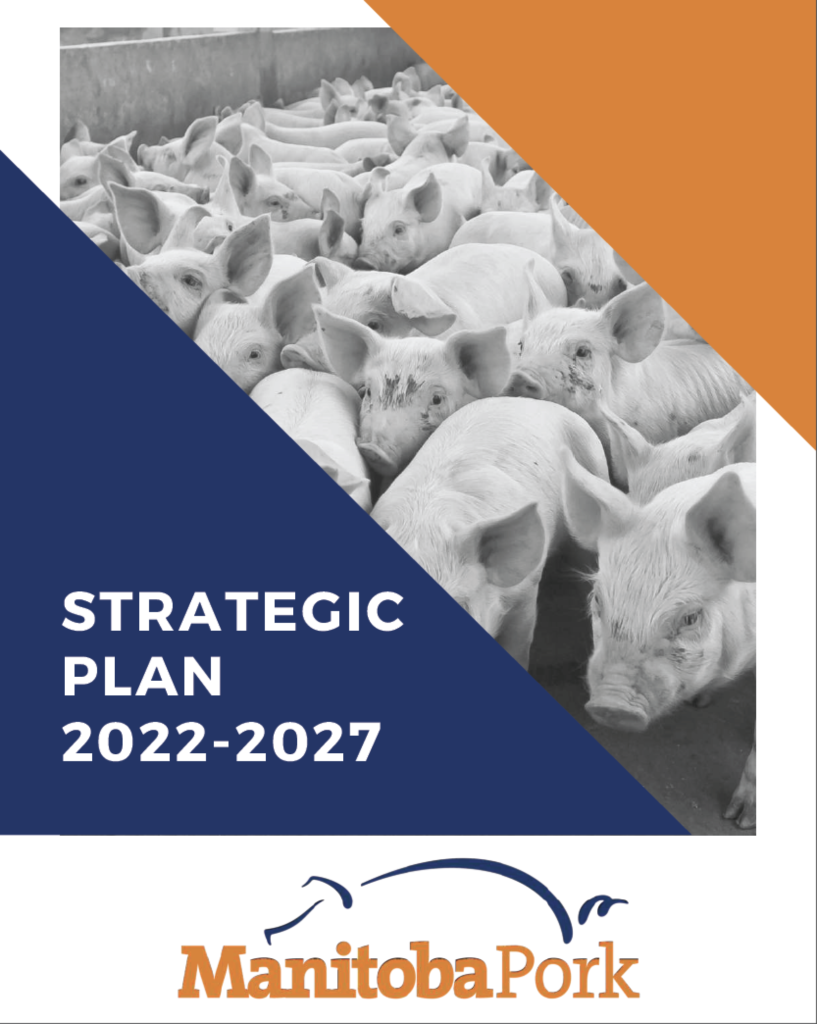
Cam Dahl the general manager of Manitoba Pork said the Council is looking to grow the industry but needs to determine how to expand and develop.
The MPC’s five-year strategic plan for 2022-2027 will focus on key result areas over the next five years, including challenges and opportunities that will guide this work.
Representing all Manitoba hog producers there are over 600 hog farms in Manitoba. In 2020 these farms produced 8.2 million pigs.
“In addition to supplying our local needs, world-class Manitoba pork is an export superstar, shipping to over 24 countries around the world.”
Coming on the heels of close to $200 million of investment, “It’s excellent news for Manitoba and value-added processing and investment in agriculture.”
Maple Leaf Foods is expanding its bacon plant in Winnipeg to make it a center of excellence for bacon, and that comes with 350 more jobs. The bacon comes from pork produced by Manitoba farmers but the processing moves back home from the United States.
Topigs Norsvin is investing in a new nucleus farm in Manitoba at the other end of the value chain. This investment represents the single biggest investment in the history of Topigs Norsvin. The new nucleus farm will be part of a bigger plan to upgrade and expand the nucleus capacity in Canada. A 30-million-dollar investment and 30 jobs will help build the communities and the hog industry.
Dahl said while all this is going on MP and the industry are at an inflection point. Some of the infrastructure built in the late eighties and the nineties needs rebuilding.
“We’re looking for growth so that we can fill those processing jobs in places like Brandon [Maple Leaf Foods] and Neepawa [HyLife Foods]. And looking at ways of securing stability for the industry to allow and facilitate that investment for growth and renewal. So such things like access to credit, access to labour are critically important.”
The other is to address the questions from consumers around where their food comes from and provide those assurances around environmental sustainability and animal care.
“Our farmers do care for their animals, and we need to tell that story and help farmers tell that story. So that’s all part of the renewed plan going forward. It’s exciting, and it’s looking optimistically for the next five years for growth and development.”
When asked how realistic it is to accomplish those goals in the current political atmosphere, Dahl said it’s realistic, but it will take some work. However, engaging with the politicians is a vital part of the plan. Therefore, it may be slightly different for the organization to spell out how they will engage with provincial politicians explicitly.
“We will engage with our municipalities, the political leaders in your community, how we work together to have that investment. But, again, think about what Topigs investment for Plumas, MB means. So, having those discussions with our provincial and municipal and federal leaders on how we accomplish those goals, I think it’s realistic, but we need to do some things.”
Those discussions need to focus on public trust ensuring the regulations continue on sound science and not industry misperceptions and providing access to international markets, ensuring proper preparation to keep diseases like African Swine Fever out. Finally, ensuring the producers are up to date on best management practices around environmental stewardship and animal care.
“I think the growth is realistic, but it takes some work. In the last five years, we look back at $150 million to $200 million invested in private money in growth in hog production in Manitoba. So that’s up to 200 million dollars invested in expanding primary agriculture in this province. And that’s a good new story, and I think we can continue.”
The return on investment is still lacking. Some of that comes from some of the cycles in the industry, locally, politically, and in international market uncertainty.
“We see that now surrounding China and some of those non-tariff aid barriers that are keeping our processors from shipping into China. We have some of those international market conditions that are contributing to that uncertainty. And that is a brake on investment.” So those big ups and downs in the sector also create that significant uncertainty and create some hesitancy. •
— By Harry Siemens






